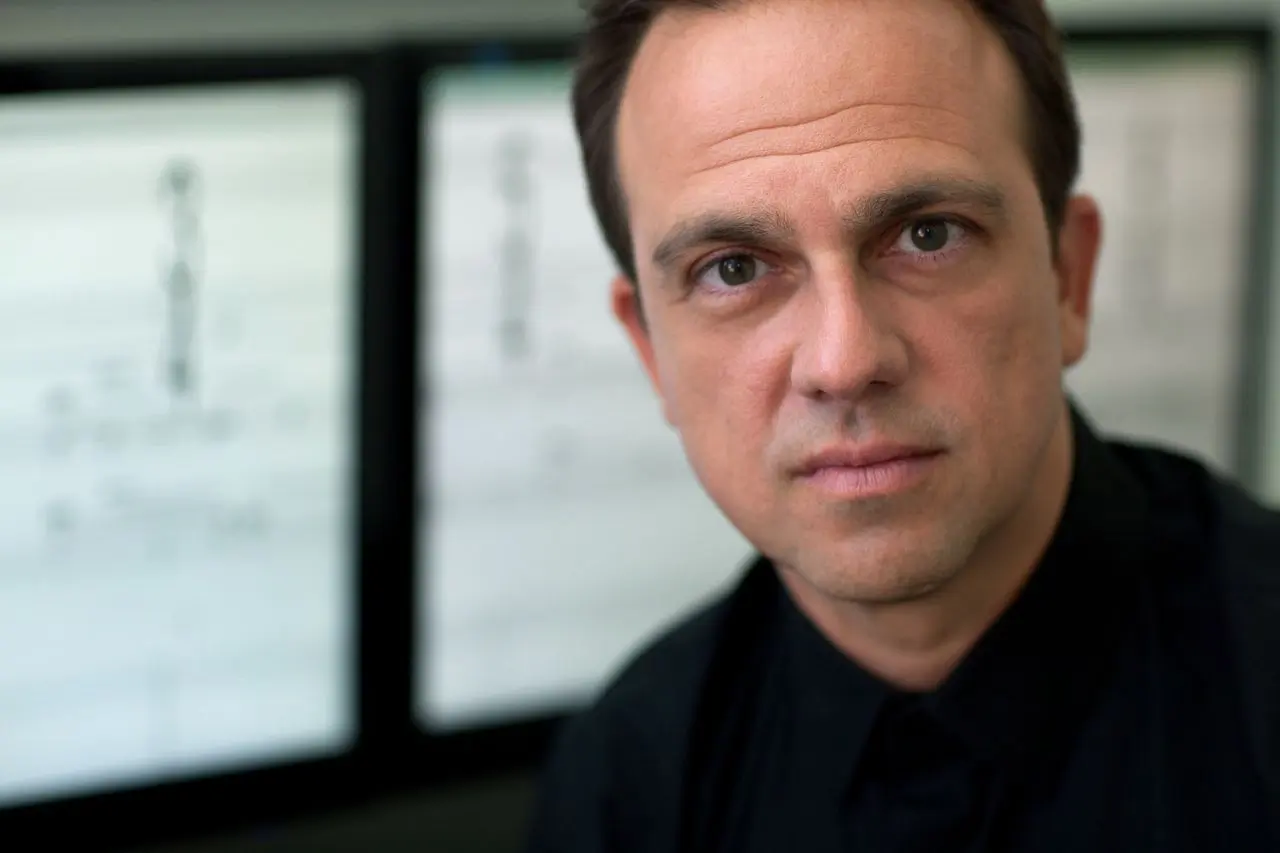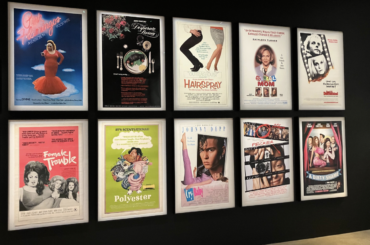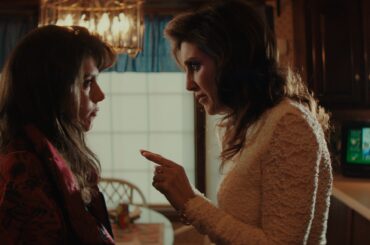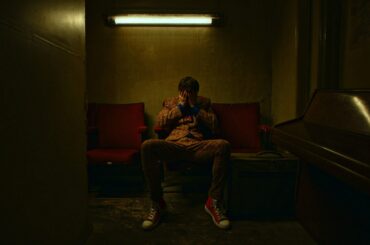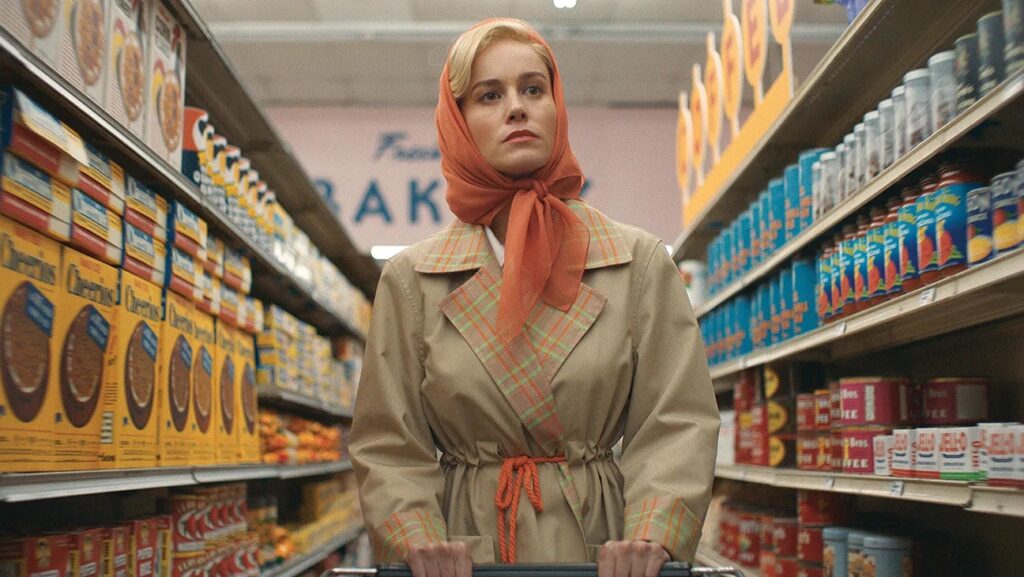
Carlos Rafael Rivera has had a journey. He played Poison covers at High School proms, was mentored by Randy Newman, and broke out as a composer after teaching a wizard of Hollywood screenwriting, Scott Frank, guitar lessons. Again, talk about an artist’s life.
Rivera, however, isn’t an artist.
Well, The Queen’s Gambit composer is an artist, but he doesn’t call himself one, despite his work on Griselda, Lessons in Chemistry, and Monsieur Spade all pointing toward a bright neon sign that reads ARTIST. First and foremost, Rivera is a craftsman, and the composer and University of Miami professor told Immersive Media why.
[Note: This interview has been edited for clarity and length]
With Griselda, Lessons in Chemistry, and Monsieur Spade, you covered the ’50s, the ’60s, the ’70s, and the ’80s.
Dude, crazy. I’ve never thought of it that way. That’s cool as shit, man.
[Laughs] How’d the schedule work for these three shows?
It’s always per project and surviving the cue, you know what I mean? Like, this has to get approved. Did they approve it? Great, what’s next? The advantage with people like Scott Frank, for example, for the Monsieur Spade story, is that I have plenty of time beforehand, so we find the tone earlier on and it’s less of a race.
For Lessons in Chemistry, it was definitely tight. I came in and Lee Eisenberg and Natalie Sandy, they were all still writing the last few episodes while we were starting to post on the first two. It was quick and I had no sleep; coffee wasn’t good enough. Central nervous system was cracking.
But it’s good because with them I really enjoyed that they were showrunners clear on what they wanted. They wouldn’t talk musically, just the character or tone. I really enjoyed the back and forth and the process. Sometimes, you notice people don’t know what they want or what they don’t want. In this case, they knew what they did or didn’t want.
I really enjoyed making corrections, and there are always revisions in what we do. We submit something, like this is what I think it is, and it’s not quite what they want. It’s really a craft. Ultimately, I do think of this as a craft. I don’t think of this as art, if that makes sense.
It becomes artistic only when the editing is great, when the acting is great, when its cinematography is great, when the sound design is great and music comes in and can add something that starts to elevate. But I don’t ever think of what I do as artistic. It’s only artistic when it becomes a part of a whole.
Have you always felt that way?
No, because I wasn’t doing work for visual media. I was composing classical music and when I would get a commission, I would write something and play it, and it was technically art only because it came from me; there was no filter. It was my version of my story, and that’s what the piece of music would be.
But in this world, it’s very much someone else’s vision, and they’re hiring me to help them tell that story. It’s weird especially when you’re coming up, I tell my students, “Giving yourself the word ‘artist’ is a big boulder to bear.” You’re screwed because already you’re out of the gate with everything against you, because there is art out there that’s amazing and you got to do this one thing and let go of being so precious about what we do. Letting go of our ego is the hardest thing, but it helps the process.
Now, I can write something, and they’re like, “We hate it,” but I cried when I wrote it. They don’t care. It doesn’t matter. It’s not about me; it’s about the story and it’s not working for the story. It’s really great. Making that adjustment takes a while at first, but I’m all about it. I think it’s made me a better musician.
It’s funny, you’re reminding me I’ve never liked when someone is called a “journeyman” as a negative. What’s wrong with that? It means you’re adaptable.
I agree with you, and what we do is craft, and it’s just that you get really good… I feel like I’m really good at writing, but it may not be that I’m really good for that project and it doesn’t matter. That’s why there are more people and more composers and why there are various styles that you can choose from and you grab onto that if that’s what speaks to your vision, hire that person. You know what I mean? You’ll be off to a better place. It’s a long conversation because certainly it can be interpreted wrong, but it’s not my intention at all to say there’s no artistry in it. There is artistry in it. It’s just more artisan than artist.
You’re not making it a blanket statement, either. It’s how you feel about your role.
Heck yeah. To be honest, man, the way I feel is it’s also maybe a psychological place of mind to help me get through it.
Such as caring less if you cried about what you wrote and producers hate it?
And being able to cry when you do something is why we do it in the first place. Everything you want to write, everything that moves the world and will change and be the cure for everything, but the reality is it’s not going to add. It’s not. The odds aren’t that way. They’re not in your favor. You’re just writing the best thing you can for that scene in that moment, and if you’re lucky, then you’re truly, truly lucky. The whole thing has to be well-made in order for me to even get to have a conversation with you. Do you know what I mean?
Absolutely. There are so many components and variables. It can be such a dance, too, I imagine, especially when you compose to Scott Frank’s dialogue, right?
Scott is one of the best, man. Dialogue is the melody in the world I live in, so I write around dialogue. That’s one of the most important things that I want to do – clear dialogue – and I want to write in a way where in the mix, they don’t have to raise and lower my music. It’s just written that way to go with the landscape of the sound design and the dialogue as melody.
It’s almost like in blues music, the good singers and the good guitarist that support the singer. I don’t want to be on it. I don’t want to be playing while they’re singing because then it’s like I’ll get lowered in the mix. And so, that is important for me.
How did you find yourself responding to Elizabeth’s (Brie Larson) voice? How’d she influence your choices?
Her story is like a river. Her life event. She was the daughter of a pastor who would take people for their money and then had this whole ruse thing going, and then she kind of goes to college and has a very horrible experience, traumatic experience there, and then has to adjust to that. She’s also anachronistic.
She’s a woman of today in the ‘50s. She’s a woman out of time, out of place, ahead of her time, ahead of her place. All of those things are things you can score. But the truth is what mattered to me was what I felt was the universal thing, was that the fact that her life takes unexpected turns like yours has and mine have.
I grew up in Washington, grew up in Central America, and then I moved to Miami, to LA, and I’m in Miami again now. Life events have happened to all of us that are universal and everybody’s story is very unique, very unique. And so, her story took such different directions that what I want to do is write a melody for her that went to unexpected places. If you hear the main title, theme idea, the melody that goes when you’re listening to it, it doesn’t go where you think it would go. It just starts going to weird places, and hopefully, it lands.
How did living in those different cities influence your musicality?
I know it did definitely influence me. When you’re in elementary school through high school, you’re dealing with the culture of a country. You’re having to learn the rivers of the country, the geography, how you learn your 50 states. I had to learn all the rivers of Costa Rica and all that, which I forgot. But also you’re listening to a lot of music and cultural stuff. My mom’s from Guatemala and my dad’s from Cuba.
My dad would listen to a lot of Cuban music, and I hated it because it was my parents’ music. I would listen to Boston and Journey, and God knows what else from that time, from the seventies and eighties. I guess it mixes up and it creates an eclectic thing.
But I think anybody’s output is their own experience, and you don’t have to move around the world to have an eclectic or a varied taste. I think anybody can feed their brain as much content as they get access to. I think it affected me, but I don’t know to what degree, if that makes sense.
What was your first paid gig as a musician?
I was a guitar teacher. I started teaching guitar when I was 15. As soon as I could drive, I started driving to people’s houses and would teach guitar for 20 bucks an hour. I remember when I went up to $25, I was like, big time! I hit the big time, folks, but I’ve been teaching all my life, and that’s what I still do. I love teaching.
But as a performer, we started a cover band when I was 16. We started doing cover music, playing the local high schools. The band would play Poison, all the romantic prom songs, all the popular stuff. We started making money at it.
My dad gave us money to start. He gave us $2,500 to buy gear, like speakers, mics, everything. Our drummer had a white van, as drummers did. We would take all the gear in that and show up to a gig. And then, we paid my dad back.
We got to the point where we were making $2,000 a show, like a gig in ‘87 or ‘88 for a high school prom. It was a business. And then we said, “We’re going to write original music, and we’re going to be huge!” And of course, we weren’t.
It was a life education. You think things are going a certain way and then life’s like, “No, not really.” But it was really fun, man. It was a great time to be making music and I enjoyed the crap out of it.
Griselda, Lessons in Chemistry, and Monsieur Spade are now all available to stream.


